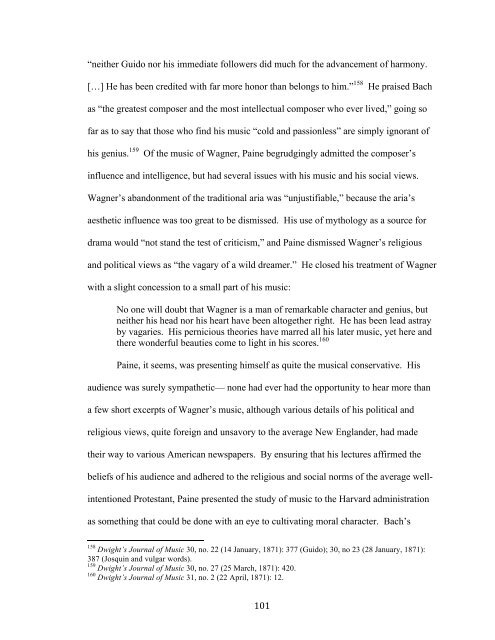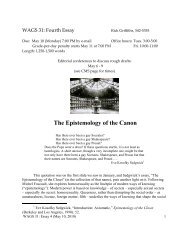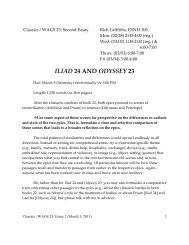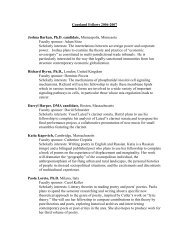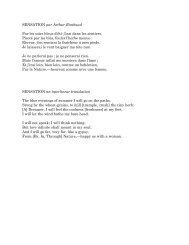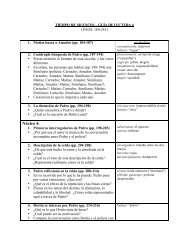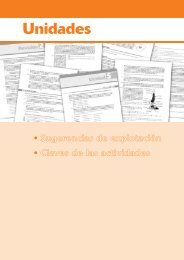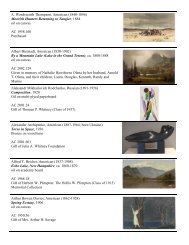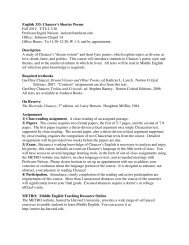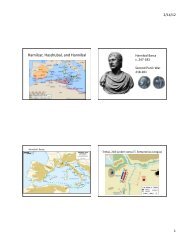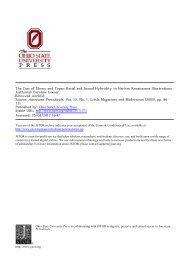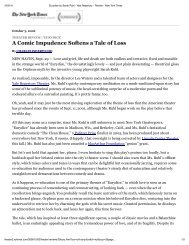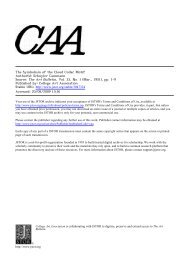Finding Their Voices - Amherst College
Finding Their Voices - Amherst College
Finding Their Voices - Amherst College
You also want an ePaper? Increase the reach of your titles
YUMPU automatically turns print PDFs into web optimized ePapers that Google loves.
“neither Guido nor his immediate followers did much for the advancement of harmony.<br />
[…] He has been credited with far more honor than belongs to him.” 158<br />
He praised Bach<br />
as “the greatest composer and the most intellectual composer who ever lived,” going so<br />
far as to say that those who find his music “cold and passionless” are simply ignorant of<br />
his genius. 159 Of the music of Wagner, Paine begrudgingly admitted the composer’s<br />
influence and intelligence, but had several issues with his music and his social views.<br />
Wagner’s abandonment of the traditional aria was “unjustifiable,” because the aria’s<br />
aesthetic influence was too great to be dismissed. His use of mythology as a source for<br />
drama would “not stand the test of criticism,” and Paine dismissed Wagner’s religious<br />
and political views as “the vagary of a wild dreamer.” He closed his treatment of Wagner<br />
with a slight concession to a small part of his music:<br />
No one will doubt that Wagner is a man of remarkable character and genius, but<br />
neither his head nor his heart have been altogether right. He has been lead astray<br />
by vagaries. His pernicious theories have marred all his later music, yet here and<br />
there wonderful beauties come to light in his scores. 160<br />
Paine, it seems, was presenting himself as quite the musical conservative. His<br />
audience was surely sympathetic— none had ever had the opportunity to hear more than<br />
a few short excerpts of Wagner’s music, although various details of his political and<br />
religious views, quite foreign and unsavory to the average New Englander, had made<br />
their way to various American newspapers. By ensuring that his lectures affirmed the<br />
beliefs of his audience and adhered to the religious and social norms of the average wellintentioned<br />
Protestant, Paine presented the study of music to the Harvard administration<br />
as something that could be done with an eye to cultivating moral character. Bach’s<br />
!!!!!!!!!!!!!!!!!!!!!!!!!!!!!!!!!!!!!!!!!!!!!!!!!!!!!!!!<br />
158 Dwight’s Journal of Music 30, no. 22 (14 January, 1871): 377 (Guido); 30, no 23 (28 January, 1871):<br />
387 (Josquin and vulgar words).<br />
159 Dwight’s Journal of Music 30, no. 27 (25 March, 1871): 420.<br />
160 Dwight’s Journal of Music 31, no. 2 (22 April, 1871): 12.<br />
! 101!


